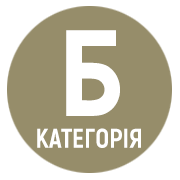WAR. INDIVIDUAL OR COLLECTIVE MADNESS? A COMMENTARY ON THE “LEADERSHIP ANALYSIS IN INTERNATIONAL AFFAIRS: A PSYCHODYNAMIC PERSPECTIVE” BY A. LUPIS
DOI:
https://doi.org/10.32782/upj/2024-1-13Keywords:
leader, leadership, psychoanalysis, psychobiography, Vladimir PutinAbstract
This text is a commentary on “Leadership analysis in international affairs: A psychodynamic perspective” by Alexander Lupis, published in this issue. As a Ukrainian researcher of wartime leadership and the personality of Vladimir Putin, the author complements the ideas formulated by Dr. Lupis with his own observations and thoughts. In particular, regarding the ethical boundaries of publishing the conclusions of psychobiographical studies of public figures, he emphasises that material from open sources can be commented on by anyone according to the rules of public discussion, unlike material obtained during professional examination or therapeutic interventions. An ethical difficulty in this case may arise if the author of such an conclusion publicly presents himself or herself as a mental health professional, which may create the impression of an official diagnosis. Therefore, it is imperative that the text contains a warning about the “non-medical” status of the proposed conclusions. The author also emphasises that when analysing public figures who are political leaders, their deliberate desire to mislead for the purpose of control should be taken into account. The author also emphasises the impossibility of maintaining neutrality in the study of political leaders, but it is important for the researcher to be aware of their bias in order to remember that the conclusion drawn remains a hypothesis. In terms of historical parallels, the author supports the comparison of Vladimir Putin with Adolf Hitler proposed by Alexander Lupis, but emphasises that Putin probably considers himself the heir to Stalin, not Hitler. In general, he suggests that there are two main socio-psychological traits of the Russian dictator: paranoid and antisocial. Paranoid communication styles are inherent in the Russian authorities, which condemns the population to a repetitive “fight-or-flight” activity and makes it impossible for Russian society to process historical traumas.
References
Kechur, R., Haber, D., & Translation by Anastasia Fehir. (2023). An exchange with Roman Kechur: Preserving thinking during wartime. Psychoanalysis, Self and Context, 18(3), 364–378.
Freud, S. (1999). Leonardo da Vinci: A Memory of His Childhood.
Freud, S. (1939). Moses and monotheism.
Grinberg, L., Sor, D., & de Bianchedi, E.T. (1977). Introduction to the work of Bion: Groups, knowledge, psychosis, thought, transformations, psychoanalytic practice. Jason Aronson.
Mahoney, J., & Schensul, D. (2006). Historical context and path dependence.
Рікер, П. Герменевтика та метод соціальних наук. URL: https://stud.com.ua/42279/filosofiya/riker_germenevtika_metod_sotsialnih_ nauk. (дата звернення: 10.09. 2022).
Ogden, T. (2018). Reverie and interpretation: Sensing something human. Routledge.



